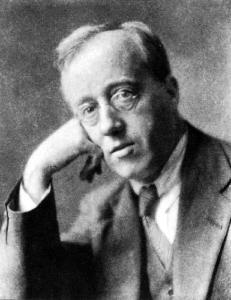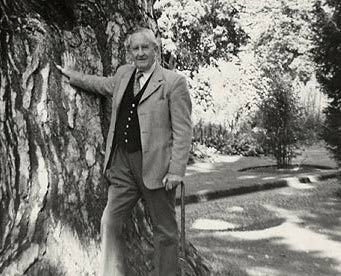C.B. McCullough's Blog
March 14, 2016
How Much Does Editing Cost?
Perfect words make good ideas great, but let’s get real—not everyone wants to pore over their old English notebooks before jotting a Facebook status. Perfect, precise communication of your ideas could be the missing ingredient to take a business or personal project to the next level. One option is to outsource the work to a writer or editor. But how much does professional editing cost?
Before you talk money, what you really need to ask yourself is, What kind of editing do I need? Most people don’t know the answer. Buying a service should involve the same market research as buying a physical product. If you don’t educate yourself, you’ll end up paying for a Harley and riding home on a moped.
When it comes to writing and editing, your budget should be determined by your needs. Do you know what to look for in an editor? Do you know the level of editing your material requires? Do you find yourself wondering, What’s the difference between copyediting and proofreading, anyway? And what will I gain from professional editing? It’s time for you to become an informed consumer.
The Editor’s Tool Chest
The word “editor” suffers from ambiguity. In the project management sense, it applies to someone who commissions and curates material for publication (think Editor-in-Chief) and manages projects through coordination and supervision. In the revision sense, the word applies to someone who corrects material to prepare it for publication.
To help you save time and money, here’s a lesson on the tools of the editor.
Hammer and Nails: Copyediting
Copy is any text that’s written for publication. Copyediting is the process of editing copy for accuracy, clarity, style, consistency, and formatting, and correcting errors in spelling, grammar, punctuation, sentence structure, word choice, subject/verb agreement, etc. Copyediting also may include fact-checking, checking references, and alterations to adhere to the preferred style guide.
Sandpaper and Paint: Proofreading
Most people think proofreading means fixing spelling, grammar, and punctuation. Most people are wrong. A proof is a preliminary draft of a piece of copy, and proofreading is the final quality check before copy goes out to the world. A proofreader makes no changes but identifies and marks any errors or discrepancies that have been missed. The writer or copy editor then consults the proofreader’s marks and makes any necessary corrections.
Blueprints and Permits: Developmental Editing
This category chiefly applies to books. A developmental edit, sometimes known as structural editing, involves big-picture planning, organization, and flow. It may include the creation of outlines, chapters, and drafts, developing a narrative for the presentation of ideas, and suggesting new material.
Remodeling and Interior Decorating: Substantive Editing
If you have material that needs to be rewritten, expanded upon, or reorganized in general, then substantive editing is the name of the game. This stage hones in on revisions at the paragraph level to aid in narrative and flow. Sometimes, rewriting is involved.
Admittedly, when it comes down to practical work, these categories tend to overlap. You might need a combination of services or even a full, top-to-bottom overhaul. The best editors will be flexible based on your needs. As stated in the Editorial Freelancers Association’s Code of Fair Practice:
“Editorial freelancers perform a variety of tasks that often defy common descriptions of editorial jobs. For example, an editorial freelancer who takes on a copyediting project might also correct logical flaws in narration or make other changes that entail substantive editing. A freelancer doing a proofreading project might impose a consistent style, even though editing for style is generally viewed as the copyeditor’s job.”
Determining Your Budget and Spotting Red Flags
Rates vary widely. Some professionals work at per-word rates, and others charge by the hour. If you encounter a freelance editor who does not have a list of predetermined rates arranged by category, proceed with caution. And if they can’t tell you the difference between the categories mentioned above, consider it a red flag.
Now that you’re an informed consumer, you can weed out the phonies. Kindly tell your candidate that you’re looking for an editor, but you don’t understand the difference between copyediting and proofreading. Their answer will speak to their familiarity with the trade. But a tricky question won’t be enough. It’s important to see your editor’s skills in action before you hire them. A freelance editor is a contractor, however, so don’t ask them to complete an editing “test.” The Editorial Freelancers Association’s Code of Fair Practice states:
“References and work samples are preferable to proficiency tests. . . . Only editorial novices should take proficiency tests; these represent unpaid time and impose an opportunity cost on the freelancer, who could be earning income during the time required to take the test.”
When vetting an editor, ask to see a resumé, a list of past projects, or some work samples. Most importantly, don’t forget to ask if they provide sample edits.
The Value of a Sample Edit
There’s no better way to start than to try before you buy. You’ll know you’re working with a true professional if they offer you a sample edit, free of charge, to demonstrate their skills and showcase the value they can bring to your work. Most editors use the Track Changes tools available in Microsoft Word, Google docs, and Apple Pages, so you can see everything they do and accept or reject each change as you see fit.
Pay attention to the results. Does the editor provide any explanations for his or her changes? Does the editor critique your work and simply stop there? Or does he or she offer solid suggestions for how to fix the perceived problem? The value of an editor lies in his or her ability to solve problems, not just point them out.
When determining your budget and shopping for editors, one of the most valuable tools to keep in your back pocket is the list of common editorial rates courtesy of the Editorial Freelancers Association.
Arm yourself with knowledge. Shop smart. Start with a free sample edit, and you can’t go wrong. Most of all, work hard and have a good time.








March 1, 2016
Editing for Novels
Are you searching for editing services? Many writers turn to freelance editors to help prepare manuscripts for submission to literary agents or self-publishing services. But vetting book editors can be overwhelming. Even if you find a promising candidate, how do you know you can trust the quality of his or her work? It’s an unpleasant feeling to pay a deposit on a per-word rate—up front—without any assurances. You find yourself wondering: Can I trust this person with my work? Does he or she know what they’re doing? Will I really get what I’m paying for?
It’s not easy to put your novel in the hands of a stranger.
My name is Corey McCullough of C.B. McCullough Editing & Proofreading. I’m a professional copy editor and a member of the Editorial Freelancers Association (EFA), and I believe that if you have worked hard on your manuscript, you deserve professional, high-quality editing. That’s why I offer writing, proofreading, and editing services for writers, organizations, and authors who are considering hiring a freelance editor. I also offer free samples of my work.
This is not a limited-time offer. It’s just how I do business.
Your Free Editing Sample
There is no guesswork—edits are conducted in Microsoft Word using Track Changes, so you will see every change I make.
I accept most genres, but I won’t read anything that is trashy, graphic, or hateful in any way. (If you wouldn’t show it to Grandma, don’t show it to me.)
Your free sample edit is limited to one page or 250 words.
No strings attached—there’s no charge and no commitment.
If you’re satisfied with my work and interested in learning more, we can discuss how to proceed with your full novel.
“There is no rule on how to write. Sometimes it comes easily and perfectly; sometimes it’s like drilling rock and then blasting it out with charges.”
— Ernest Hemingway
C.B. McCullough Editing & Proofreading offers affordable, high-quality, professional fiction editing. Many authors are tempted to send me Page 1 of their novel, but I suggest Page 50. (Every writer has strong feelings about their first page, and edits are easier to stomach in Chapter Three than in Chapter One.)
I am devoted to making words shine. But don’t take my word for it. Let me prove it to you. Contact me by using the form below. Copy and paste your text sample in the box. Or provide a description of your book, and I will contact you via email within 24 hours.
Corey McCullough
C.B. McCullough Editing & Proofreading
“Perfect words for genius ideas.”
[contact-form]








Free Editing for Novels
Are you a writer searching for editing services? Many authors turn to freelance editors. These individuals usually work remotely to help prepare manuscripts for submission to literary agents or self-publishing services. But vetting book editors can be overwhelming. Even if you find a promising candidate, how do you know you can trust the quality of his or her work? It’s an unpleasant feeling to pay a deposit on a per-word rate—up front—without any assurances. You find yourself wondering: Can I trust this person with my work? Does he or she know what they’re doing? Will I really get what I’m paying for?
It’s not easy to put your novel in the hands of a stranger.
My name is Corey McCullough. I’m a full-time freelance editor and a member of the Editorial Freelancers Association (EFA), and I believe that if you have worked hard on your manuscript, you deserve professional, high-quality novel editing. That’s why I offer free proofreading and editing services for writers, organizations, and authors who are considering hiring a freelance editor. This is not a limited-time offer. It’s just how I do business.
Free Editing
There is no guesswork—edits are conducted in Microsoft Word using Track Changes, so you will see every change I make.
I accept most genres, but I do not provide editing for novels that would be classified as romance, erotica, or horror.
I won’t read anything trashy, graphic, or hateful in any way. (If you wouldn’t show it to grandma, don’t show it to me.)
Your free book editing sample is limited to one page or 250 words.
No strings attached—there’s no charge and no commitment.
If you’re satisfied with my work and interested in learning more, we can discuss how to proceed with your full novel.
“There is no rule on how to write. Sometimes it comes easily and perfectly; sometimes it’s like drilling rock and then blasting it out with charges.”
— Ernest Hemingway
C.B. McCullough Writing, Editing, & Proofreading offers affordable, high-quality, professional fiction editing. Many authors are tempted to send me Page 1 of their novel, but I suggest Page 50. (Every writer has strong feelings about his or her first page. Edits are easier to stomach in Chapter Three than in Chapter One.)
I am devoted to making my clients’ words shine. But don’t take my word for it. Let my work speak for itself. Contact me by using the form below. You may copy and paste your text sample in the box. Or you may provide a description of your book, and I will contact you via email, to which you may reply with your document included as an attachment. I will respond within 24 hours.
“Omit needless words.”
— E. B. White
[contact-form]








February 16, 2016
Roll the Dice by Charles Bukowski
if you’re going to try, go all the
way.
otherwise, don’t even start.
if you’re going to try, go all the
way.
this could mean losing girlfriends,
wives, relatives, jobs and
maybe your mind.
go all the way.
it could mean not eating for 3 or 4 days.
it could mean freezing on a
park bench.
it could mean jail,
it could mean derision,
mockery,
isolation.
isolation is the gift,
all the others are a test of your
endurance, of
how much you really want to
do it.
and you’ll do it
despite rejection and the worst odds
and it will be better than
anything else
you can imagine.
if you’re going to try,
go all the way.
there is no other feeling like
that.
you will be alone with the gods
and the nights will flame with
fire.
do it, do it, do it.
do it.
all the way
all the way.
you will ride life straight to
perfect laughter, its
the only good fight
there is.
Image courtesy of Marcus Quigmire from Florida, USA.








June 10, 2015
The Planets Suite – The Original Star Wars Soundtrack
It’s official. John Williams will score the music for the upcoming Star Wars Episode VII: The Force Awakens.
Williams, as you may know, has composed every Star Wars movie soundtrack, as well as the iconic movie scores for Jaws, Jurassic Park, Indiana Jones, E.T., and many others. But what you may not know is that Williams’s inspiration for the Star Wars soundtrack came from Gustav Holst’s The Planets.
 Each movement of Gustav Holst’s The Planets Suite is based on a planet and its astrological character.
Each movement of Gustav Holst’s The Planets Suite is based on a planet and its astrological character.The Planets Suite was written by Holst between 1914 and 1916, and each of its seven movements incorporates a planet of the solar system (I. Mars, 2. Venus, 3. Mercury, 4. Jupiter, 5. Saturn, 6. Uranus, and 7. Neptune). To establish tone, Williams borrowed liberally from themes in all seven movements of the orchestral suite. Nothing sounds more like Star Wars than the first movement: Mars, the Bringer of War. You can practically see Imperial Star Destroyers closing in on the Rebel Alliance’s hidden base.
The full Planets Suite is definitely worth a listen, especially if you’re a writer looking for an atmospheric work music, so be sure to check out the full playlist here. So, who else is counting down to The Force Awakens?








May 31, 2015
Writing According To Karl: The Worries of a Debut Book
“My book might annoy other authors. Not people, but authors, because I’m sort of joining their club… And do they want me as a member?” – Karl Pilkington
Karl Pilkington, star of An Idiot Abroad, The Ricky Gervais Show, and The Moaning of Life, voices the anxieties of a first-time author.








May 18, 2015
Karl Pilkington On How To Write A Book (It’s Not That ‘ard)
Writing advice from a prolific orange.
“Writin’ a book. Uh. It’s not that ‘ard.”
Karl Pilkington, host of An Idiot Abroad and The Moaning of Life, shares insights on the writing life and moans about word count.








April 17, 2015
The Fallen Anabasis Gets A Release Date
Return to another world, one last time. The Fallen Odyssey Trilogy comes to a close in The Fallen Anabasis.
The journey ends, 3/26/16.








April 14, 2015
The Fallen Odyssey Fan Favorite
Some major Fallen Odyssey news is coming this Friday! In the meantime, who’s your favorite TFO character?
Justin, the lost boy
Zechariah, the ancient scholar
Ahlund, the merciless mercenary
Leah, the courageous exile
Olorus, the loyal lieutenant
Hook, the silent soldier
Gunnar, the one-eyed scoundrel
The character with the most votes by next Friday wins. Write-ins accepted. Vote as many times as you like! Submit your votes here, or write-in your vote by simply leaving a comment below. And don’t forget to check back this Friday.








February 27, 2015
Tolkien’s Tree And Leaf Allegory Of The Writing Process
“There was one picture in particular which bothered him. It had begun with a leaf caught in the wind, and it became a tree; and the tree grew, sending out innumerable branches, and thrusting out the most fantastic roots. Strange birds came and settled on the twigs and had to be attended to. Then all round the Tree and behind it, through the gaps in the leaves and boughs, a country began to open out; and there were glimpses of a forest marching over the land, and of mountains tipped with snow. Niggle lost interest in his other pictures; or else he took them and tacked them on to the edges of his great picture. Soon the canvas became so large that he had to get a ladder; and he ran up and down it, putting in a touch here, and rubbing out a patch there. When people came to call, he seemed polite enough, though he fiddled a little with the pencils on his desk. He listened to what they said, but underneath he was thinking all the time about his big canvas, in the tall shed that had been built for it out in his garden (on a plot where once he had grown potatoes).”
– J.R.R. Tolkien, Leaf By Niggle












